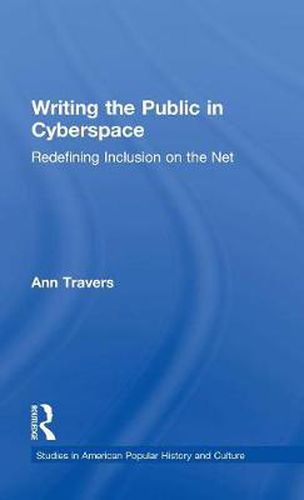Readings Newsletter
Become a Readings Member to make your shopping experience even easier.
Sign in or sign up for free!
You’re not far away from qualifying for FREE standard shipping within Australia
You’ve qualified for FREE standard shipping within Australia
The cart is loading…






Popular claims that new information technology will expand democratic and public spaces are problematic given the exclusive history of the public and the restriction of access to computer technology to elites. This book investigates patterns of behaviour in a cybercommunity consisting of Americans and Canadians and discusses the ways in which these so-called public spaces are likely to reshape the boundaries between social insiders and outsiders rather than eliminate them. Traverse analyzes the ways in which the norms for participation within cyberspaces often play a role in underminding public tendancies, but notes that new information technologies provide educators, feminists and other social groups concerned with broadening the inclusive nature of public spaces with unique opportunities. The book’s final section explores current efforts by feminists on-line to expand public access for women and suggests further strategies for developing genuinely inclusive public spaces.
$9.00 standard shipping within Australia
FREE standard shipping within Australia for orders over $100.00
Express & International shipping calculated at checkout
Stock availability can be subject to change without notice. We recommend calling the shop or contacting our online team to check availability of low stock items. Please see our Shopping Online page for more details.
Popular claims that new information technology will expand democratic and public spaces are problematic given the exclusive history of the public and the restriction of access to computer technology to elites. This book investigates patterns of behaviour in a cybercommunity consisting of Americans and Canadians and discusses the ways in which these so-called public spaces are likely to reshape the boundaries between social insiders and outsiders rather than eliminate them. Traverse analyzes the ways in which the norms for participation within cyberspaces often play a role in underminding public tendancies, but notes that new information technologies provide educators, feminists and other social groups concerned with broadening the inclusive nature of public spaces with unique opportunities. The book’s final section explores current efforts by feminists on-line to expand public access for women and suggests further strategies for developing genuinely inclusive public spaces.